Black Fire: African American Quakers on Spirituality and Human Rights
Spanning more than 150 years, Black Fire brings together the words of Friends who spoke truth to power in some of America’s most tumultuous times. Featuring the writing and speeches of Bayard Rustin, Bill Sutherland, Sojourner Truth and many more, this book is a unique exploration into the spirituality and activism of Black Friends, told in their own words.
In partnership with Friends General Conference, we’re bringing you an exclusive peek into the new audiobook of Black Fire: African American Quakers on Spirituality and Human Rights.
In this behind-the-scenes episode, we’ll speak with some of the book’s editors and share never-before-heard excerpts from the audio version.
Get your copy of Black Fire.
Subscribe so you don’t miss an episode!
Leave a comment below to share your stories and thoughts!
Lance Danton reading Howard Thurman: “How good it is to center down!
To sit quietly and see one’s self pass by!
The streets of our minds seethe with endless traffic;
Our spirits resound with clashings, with noisy silences,
While something deep within hungers and thirsts for the still moment and the resting lull.
Georgia: Hi everyone. It’s Georgia here.
Throughout Season 2 of the podcast, I was working behind the scenes on an audiobook version of Black Fire: African American Quakers on Spirituality and Human Rights and I’m pleased to announce that it is ready for your ears…and today we’ve got an exclusive sneak peak for you!
If you’ve been a Friend for a while, you might have heard of Black Fire. When Friends General Conference first published this book in 2011, it really shaped how Friends viewed their history and it gave a voice to African American Quakers in a way that hadn’t happened before.
Now, with the audiobook, there’s a whole new way to engage with the writings in this book. I imagine that as podcast listeners, you probably also listen to audiobooks, so I think you’re really going to love hearing the words of Black Fire brought to life.
There is so much variety in this book — from familiar names like abolitionist Sojourner Truth to civil rights leader Howard Thurman and then there are lesser known Friends like Ira de Augustine Reid who was a proponent of desegregation and who had his passport seized because he was labeled a communist.
A lot of this book was really meant to be heard because it’s poetry, it’s speeches, it’s songs. There are also essays on a variety of concerns for African American Friends and Friends in general. Even though some of the work dates as far back as the late 18th century, it’s still so relevant to today and it deserves to be heard.
So when Friends General Conference AKA FGC asked us to turn Black Fire into an audiobook, we were excited to bring these voices to life with professional voice actors who really embody the messages of peace, equality, and social justice.
These narratives illuminate a side of Quaker history that has often been incomplete.
As Emma Lapsansky-Werner says in the forward to Black Fire, “The question of race and race relations has bedeviled Quaker individuals and communities since the days of Quaker founder George Fox…”
So, today we’re going to go behind the scenes of the book and find out what it’s about and why it’s important for Quakers today. We’ll hear from some of the people who were involved in the creation of this anthology and we’ll hear excerpts from the forthcoming audiobook, which will be available soon via FGC’s bookstore at FGCQuaker.org.
Let’s get started.
How did Black Fire even come about? I called up Audrey Greenhall to learn more. Audrey is the manager of Quaker Press and FGC’s bookstore manager. Here’s Audrey:
Audrey Greenhall: The impetus for the book really didn’t come from FGC staff. It grew out of an event, a 2003 event, where representatives from various Quaker yearly meetings were convened in Pittsburgh by Friends General Conference. And they were convened to discuss issues of race and racism within the Religious Society of Friends.
And what I am telling you I am taking from Dr. Harold Weaver’s preface in the book. He was really the driving force behind the book.
Georgia: I did speak with Dr. Harold Weaver AKA Hal about the audiobook and we tried to arrange a time for an interview, but unfortunately we weren’t able to coordinate a time that worked. He’s a busy guy.
But I do know that Hal’s takeaway from that FGC conference was that he wanted to see more collaboration between Friends of African and European descent and for that collaboration to yield more action.
Georgia: Luckily I was able to speak with a few people who know Hal and who were involved in the book. Emma Lepsansky-Werner is an African-American Friend and wrote the forward for Black Fire. She also helped with developmental editing for the book. Emma has known Hal for a long time and says that the book really relied on his vision and his extensive experience with Friends.
Emma Lepsansky-Werner: It’s a reflection of a really clever and broad-thinking mind. And that’s Hal Weaver’s mind. And what he did was go find another set of people who had broad thinking like his own. And that sometimes a really good book can come out of a writer interrogating people like him or herself and bringing those people forward so that the rest of us can interrogate them too.
Georgia: Since, this would be a unique book, covering territory that had never come together in one place, there was a lot for Hal to consider. What would the scope of the book be? Would only Quaker voices be included or also Quaker adjacent folks like Howard Thurman? Would there be African American Quakers and African Quakers? And what years would the book encompass?
To help shape the book, Hal began speaking with a few Quakers who already had an interest in African American Friends and their history. They were Paul Kriese and Stephen Angell. Like Hal, both were professors. Paul Kriese was a political science professor who was active in civil rights work. He died in 2021, but I spoke with Stephen Angell while visiting Earlham School of Religion where he is still a professor.
Stephen Angell: The book is really the brainchild of Hal Weaver and he first approached Paul Kriese to get him involved, unbeknownst to me, even though Paul was a friend of mine. And then in, I think it was the spring of 2005 I was down in Guatemala for a meeting of the Friends World Committee for Consultation. And Hal knew of my interest in, you know, in African American Quakers, and came up to me, and he said, you know, he said, “Should I include Howard Thurman or not?” And I said, “Yes, absolutely.”
Georgia: Stephen had actually spent part of his academic career studying African Americans and religion, so he had a lot to contribute to the discussion on Black Fire.
Stephen’s interest was sparked as a young Quaker when he met Barrington Dunbar, who had devoted his life to social work, Black liberation, and Quakerism.
Stephen: As a child, growing up in the Society of Friends, you know one of the persons who I met was Barrington Dunbar, who’s in Black Fire, and, you know, wrote a lot of wonderful things, and he, he stood about six feet six tall. And I was about 10 years old at the time. So I was really craning my neck to look up at him. Born in Guyana. What’s now Guyana, I think.
So he had a sort of a lilting Caribbean accent. My father introduced me to him, and I understand he really liked to talk to children. He talked to me in the most loving fashion. And you know, later I learned that, that, you know, he was one of the few Quakers at the time, who was urging, yes, this is in the middle of 1960s who was urging Quakers to listen, not only to Martin Luther King, Jr, who was pretty safe because he was non violent but people like Malcolm X and Stokely Carmichael. And, you know, I thought we needed that range of conversation as well.
Georgia: Actually, let’s listen to Barrington Dunbar’s words from the audiobook of Black Fire and read by Lance Danton. This comes from a 1968 article in Friends Journal titled “Black Power’s Challenge to Quaker Power.”
Lance Danton/Barrington Dunbar: “Vital religious experience can provide the power to overcome the world. Gandhi and his followers experienced this, as did the early Christian church and the early Quakers. Corporate worship deepens the commitment of the believers and can help them to stand firm against tyranny and oppression when they are laboring to bring about needed social reforms. For the early Quakers, such activity was the extension of worship beyond the gathered community into a world divided by hatred, fear, and exploitation.
This close connection between work and worship—between the gathered community of the Meeting and the wider community—seems to be a missing ingredient in the practice of the Quaker Meeting today, which often tends to serve the purpose of a social club where people meet to pursue their common interests in isolation from the rest of the community. We attend meetings to escape the agonies of an unjust society and to find personal refuge among like-minded Friends. Because our hearts are not stirred or our minds made sensitive to the injustices of the communities in which we live, we accommodate ourselves to a whole system of personal and group relationships in our neighborhoods and places of business—a system that has served to reinforce the assumption of white superiority. This way of life denies that there is that of God in every man, the vital message of Quakerism that provides the basis for the “blessed community” in which everyone can achieve freedom from want and fear and can realize his full potential as a human being.
We Friends must re-examine our nonviolent testimony in the light of today’s realities…
Georgia: It’s no wonder Barrington Dunbar’s life and works stayed with Stephen or that his words are included in Black Fire. But there were many other decisions to be made. When Stephen met Hal at that conference, he’d already chosen the name of the book, but he asked Stephen what the subtitle should be. Without hesitation, he answered: African American Quakers on Spirituality and Human Rights.
Hal liked it, and invited him to be an editor.
Stephen: I thought about it for a while, and thought that really, I probably couldn’t say no to that. So yeah, that started the project for about five or six years, where Paul and Hal and I were working on this book together.
Georgia: It took the trio time to decide who and what would be included in the book. That led to some disagreements about whether or not to include African voices and if the book should feature Quakers up to the present.
Stephen: That didn’t always go completely smoothly. You know, there were editorial disagreements as we went along, but it was a wonderful experience.
Georgia: They did all agree to include people who were from a range of Quakerliness. Some of the people were heavily influenced by a Quaker education, others worked closely with the Religious Society of Friends, writing for Quaker publications, attending meeting, and incorporating Quaker ideas into their spiritual and social justice work.
So there are figures like Civil Rights activist and lifelong Quaker Bayard Rustin in the book, and also figures like minister and activist Howard Thurman, who were shaped by and adopted many Quaker ideas. Here’s Emma Lepsansky-Werner again to speak more on Howard Thurman:
Emma: One of the more interesting people in the collection is Howard Thurman…Quakers are most remembered for our social justice noise. And we’re noisy social justice people. And there aren’t very many of us. And so we have to be noisy in order to be heard…
There are a few people who come to Quakerism through the door of religion as well as social justice. And several of those people are captured in the book we’re talking about here. Howard Thurman is one of them.
He personifies in many ways the modern non-white Quaker religious person.
Howard Thurman came to study at Haverford College. He studied with well-known religious leader Rufus Jones. And then he left there and went to be a chaplain at Boston University, one of the few in the 1950s, one of the few African Americans who began to actually do what W.E.B. Du Bois said needed to be done, which was that the talented tenth, a few people who could somehow crack through the wall, should go to interesting places and then open the doors behind them for other people to join them.
Howard Thurman was such a person. And I find him interesting because he was part of the group that I’m talking about, as was Bayard Rustin and Barrington Dunbar, all of whom came to Quakerism by way of kind of finding their way into social justice niches around the turn of the century because Howard Thurman was one who both had an academic energy that he brought to his Quakerism and a Quaker energy that he brought to his academic life.
Georgia: Emma says that people like Howard Thurman are part of a tradition that goes as far back as Sojourner Truth, who escaped slavery in the South and helped many others do the same.
Emma: She’s born into a family that teaches her Dutch, that’s her first language, because she’s a slave in somebody’s family.
But somewhere along the way, she finds support from Quakers. She gets her freedom, and she feels she needs to travel, telling the world two things. One, you who hold slaves need to let go of them in order to save your soul and theirs. And you who are slaves, you need to just run away in order to save your soul and theirs. And Sojourner Truth becomes a kind of wandering minstrel preaching that story. And it’s neat to have her bound up in the same book with people like Howard Thurman, who are professional religionists, and people like Barrington Dunbar, who is a professional academic and a religionist and is in some sense carrying on the tradition that was started by a woman who was neither of those things.
Georgia: Both Sojourner Truth and Howard Thurman were strongly involved with Quakers, though they might not have called themselves Friends. Truth identified as a Methodist at one point but also had a close association with Progressive Quakers.
One criticism she had with Quakerism was that they wouldn’t let her sing, while Methodists would. Yet included in Black Fire is one song that she felt “deeply moved to sing” during the 1853 Pennsylvania Yearly Meeting of Progressive Friends. Here’s an excerpt from the audiobook read by JeNie Fleming:
JeNie Fleming/Sojourner Truth: “I pity the slave mother, careworn and weary,
Who sighs as she presses her babe to her breast;
I lament her sad fate, all so hopeless and dreary,
I lament for her woes, and her wrongs unredressed.
O who can imagine her heart’s deep emotion,
As she thinks of her children about to be sold;
O, slave-mother, hope! see—the nation is shaking!
The arm of the Lord is awake to thy wrong!
The slaveholder’s heart now with terror is quaking,
Salvation and Mercy to Heaven belong!
Rejoice, O rejoice! for the child thou art rearing
May one day lift up its unmanacled form,
While hope, to thy heart, like the rainbow so cheering,
Is born, like the rainbow, ‘mid tempest and storm.
Georgia: We’re going to take a short break. When we come back, a Baptist minister centers down and we explore the importance of Black Fire for Quakers today.
Georgia: This episode is sponsored by Friends General Conference. Black Fire is a publication of Friends General Conference, frequently referred to as FGC. FGC is an association of local and regional Quaker organizations primarily in the United States and Canada. Their many programs help Friends nurture the spiritual life of meeting communities; transform relationships within meetings; enrich worship; learn together; welcome newcomers; and improve practice of Quaker processes.
Are you eager to learn more about Friends, or to strengthen your meeting? Visit FGCQuaker.org. There, you will also find a link to the FGC bookstore, offering their own publications and much more. You can also hear a sample of the forthcoming Black Fire audiobook. That’s FGCQuaker.org and we’ve provided a link in the show notes.
Welcome back.
Just as Sojourner Truth was Quaker adjacent or perhaps Quaker-ish, Howard Thurman was an ordained Baptist minister with a decidedly Quaker bent. Thurman’s work was published in Quaker periodicals, and he often used Quaker concepts such as centering down and the Light within in his writing.
Here is one such meditation titled How Good To Center Down!
Howard Thurman: “How good it is to center down!
To sit quietly and see one’s self pass by!
The streets of our minds seethe with endless traffic;
Our spirits resound with clashings, with noisy silences,
While something deep within hungers and thirsts for the still moment and the resting lull.
With full intensity we seek, ere the quiet passes, a fresh sense of order in our living;
A direction, a strong sure purpose that will structure our confusion and bring meaning in our chaos.
We look at ourselves in this waiting moment—the kinds of people we are.
The questions persist: what are we doing with our lives?—what are the motives that order our days?”
Audrey: Black Fire is a weighty book.
Georgia: This is Audrey again. I asked her why FGC decided to commission an audiobook version of Black Fire.
Audrey: Part of it was just how do we capture a larger audience? How do we get the book out there? And this is something we felt should be out there. It should be heard by more people. And right now it’s especially true.
And we have a lot of discussion, ongoing discussion, within FGC on our ministry of racism and our ministry of spiritual deepening and how do they combine, how do they support each other. And there’s a lot of that in this book.
This goes back to what Dr. Weaver’s goal was, and increasing communication and awareness between white and black Friends, and to have writings by black Friends showing their individuality, their individual contributions, was really, it’s important whether what they’re writing on is specific to human rights or not.
Not nearly enough do we hear the voices of the Black Quakers or read the thoughts of Black Quakers. It can’t just be what did the white people do for the Black people? And the other reason why we felt this would be a good choice to bring to audio is that many of the items included were written as speeches or lectures. So they’re written to be heard, which means the writer gave thought to cadence and at times rhetoric and different things that are much more apparent and important when one is communicating vocally as opposed to in writing.
Georgia: That was one reason why it was so important to find really good audiobook narrators. People who could capture the essence of Black Friends across more than a 100 years, from the Deep South to Chicago to New York. And it took some time.
I spent many hours reaching out to and auditioning African American audiobook narrators to find the perfect voices for this project. Because there are different genres and writing styles and dialects, I had to make sure that our narrators were up to the task.
I imagine that as podcast listeners, you’ve probably also listened to some audiobooks and you if you’re like me, you’ve stopped listening on occasion because the narration just didn’t work. I was determined that this would not happen with Black Fire, so I was really excited when we were able to get Lance Danton and JeNie Fleming to sign onto the project. They both brought so much enthusiasm and spirit to the project. So once we had them on board, we spent the next few months going through the process of having them record the audio, our team listened to it, we sent it to the team at FGC to listen to it, did some more polishing and now it’s ready!
Audrey: We were so pleased with the recording of the selections. Having a male and a female reader, we felt made a huge difference and we were very pleased that you could accommodate that. And they did such a superb job of bringing these readings to life. It’s really captivating to hear the words.
It’s as though the person writing was reaching through the tape and grabbing me.
Georgia: And I think that was Hal’s intent for the book, as well as Paul and Stephen’s — that it would grip the reader (or listener) and spur action among Friends within the community and without. Here’s Stephen:
Stephen: It has appeal to scholars. It has appeal to academia, but I think it also has appeal to individual Quakers in local meetings, be they black or white, and I just think it, it has a really vital message for Society of Friends and the world as a whole.
Georgia: I want to leave us with one last excerpt from the book. This comes from Helen Morgan Brooks, whose section in the book was edited by Anne Steere Nash. Brooks was an award-winning poet who grew up in Pennsylvania. She became a member of the monthly Meeting of Friends of Philadelphia in 1956 and served as a member of the Peace and Race Relations Committee of Philadelphia Yearly Meeting. Brooks had grown up in poverty and it was something she didn’t forget in her work or writing.
Here’s a piece called revelation from an unpublished manuscript.
JeNie Fleming/Helen Morgan Brooks: “I too bear record and testify to the things that I saw. Praying all Saints and our Father in Heaven to have mercy on all little people, all hopeless ones, all hired hands, all sharecroppers, all tired washer women, all scrub women, the carriers of the hod, the laborers with pick and shovel, all menials, all who are rejected, all derelicts, all the abandoned.
The worn prostitutes, the whoremongerers, the parasitical, the slaves of uncertainty, the nervous, the mentally deficient, the failing, the unwanted, the lonely, the degraded, the fallible, the delusioned, the dejected, the injured, the maligned, the sick, the weak.
All Pharisees, all pretentious ones, all sinners and transgressors and lastly the Judas Iscariots, the betrayers and the betrayed.
O my people, my people, if I could gather you together as a hen gathereth her brood under her wing and save you from sedition, false doctrine, heresy, schism and contempt of God’s Word and Commandment.
The things we hear with our ears we can refuse to believe but the things we see with our eyes we are bound to believe.
“Therefore those who have ears to hear, let them hear. Those endowed with reason, let them reason, those who know how to pray, let them pray and those who have tears to shed, let them shed them now for my People’s sake.”
Georgia: So now, the only thing left to do is for you to get the book! For more information on the forthcoming audiobook and to listen to another sample, go to FGCQuaker.org and click on QuakerBooks. Of course we will include a link in our show notes. And if you are not much of an audiobook listener, the physical book is of course still available and it’s got photos and artifacts from the authors featured in the book.
Thank you to Friends General Conference for sponsoring this episode.
Produced and hosted by Georgia Sparling.
Original music and sound design by Jon Watts (Listen to more of Jon’s music here.)
Mixed and mastered by Studio D.
This episode was sponsored by Friends General Conference.
Referenced in this episode:
- Purchase Black Fire
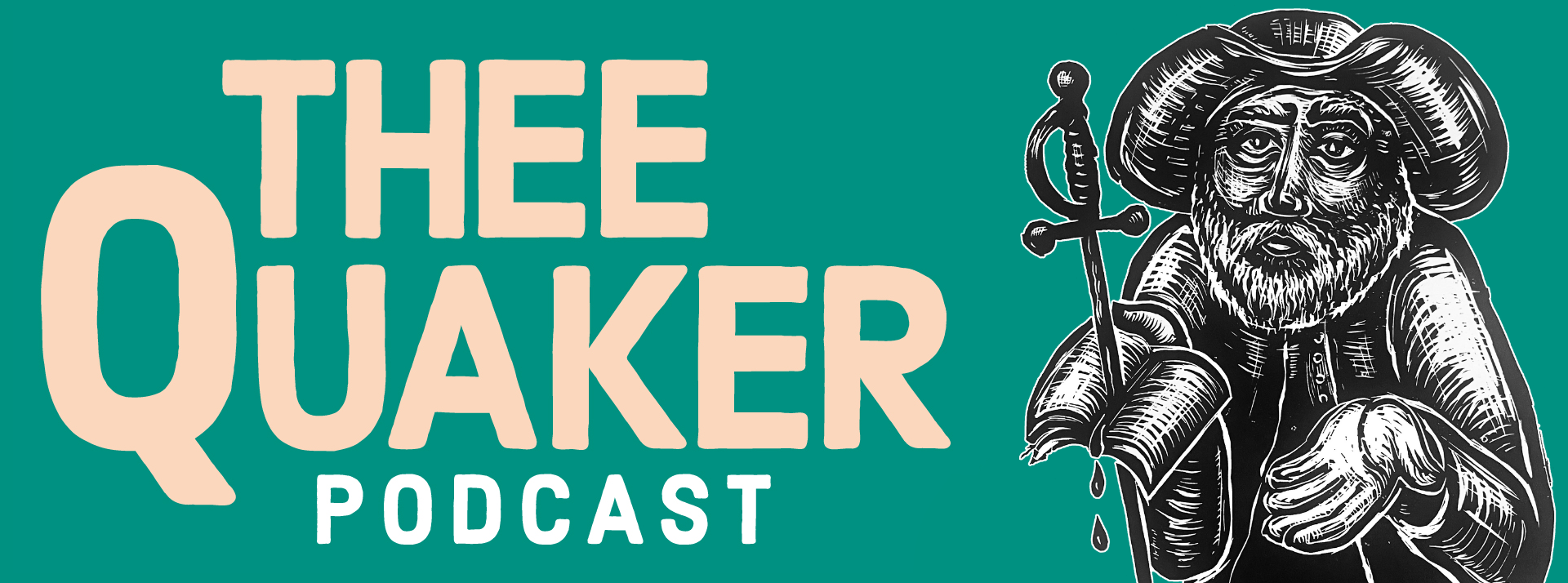

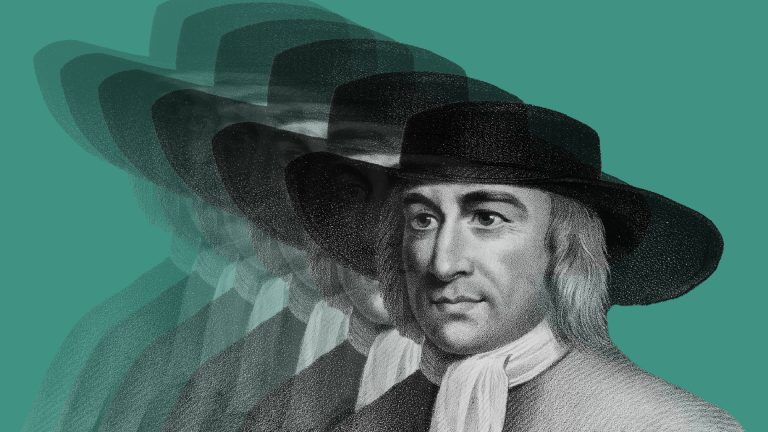
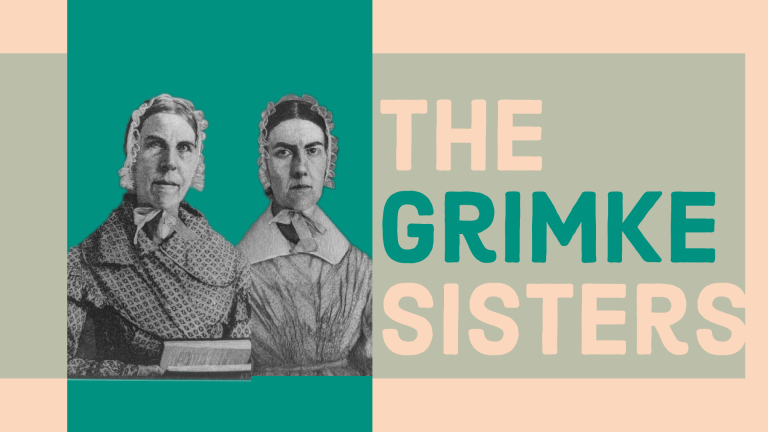
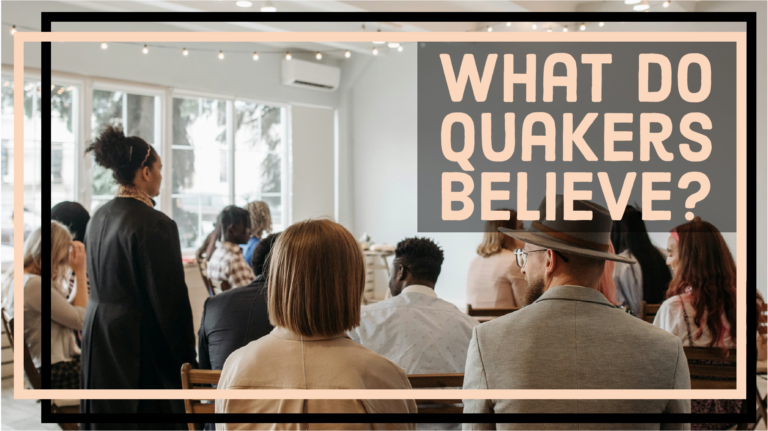
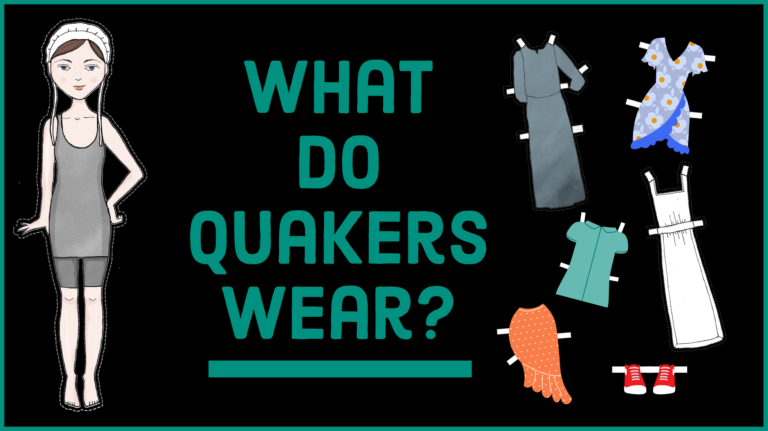
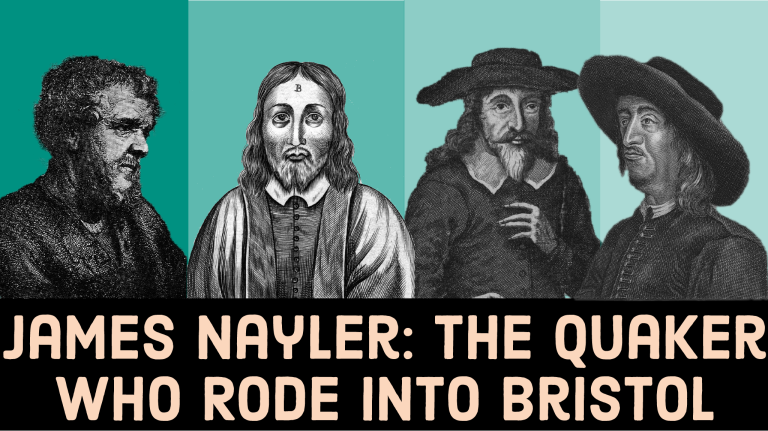
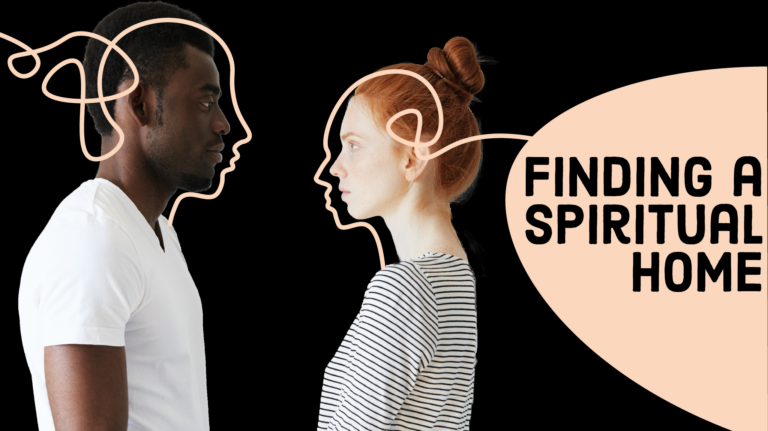
Thank you for sharing this exciting project that is so appropriate to these times.